 The community of Pinetops, N.C. has finally got 21st century gigabit broadband, but no thanks to a state legislature so beholden to Time Warner Cable, it let the cable giant write its own law to keep potential competitors away.
The community of Pinetops, N.C. has finally got 21st century gigabit broadband, but no thanks to a state legislature so beholden to Time Warner Cable, it let the cable giant write its own law to keep potential competitors away.
The passage of H129 was almost a given after Republicans regained control of both chambers of the state legislature in 2011 for the first time since 1870. The bill made it almost impossible for any of the state’s existing community-owned broadband networks to expand out of their immediate service areas. It also discouraged any other rural towns from even considering starting a public broadband network to solve pervasive broadband problems in their communities.
It was not the finest moment for many of H.129’s supporters, who had to explain to the media and constituents why the state’s largest cable operator needed protection from potential competition and more importantly, why public officials were catering to the corporate giant’s interests over that of the public.
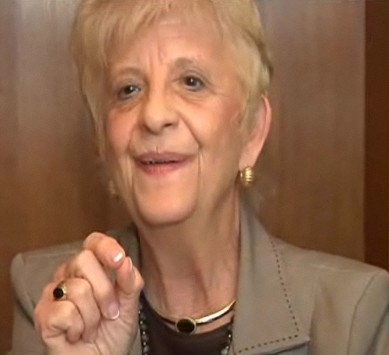
“I wish you’d turn the camera off now because I am going to get up and leave if you don’t,” said Rep. Julia Howard
Rep. Julia Howard (R-Davie, Iredell) found herself losing her cool when WNCN reporters in Raleigh caught up with her and confronted her with the fact her campaign coffers had been filled by the state’s largest telecom companies. She didn’t have an answer for that. Moments later, she appeared ready to flee the interview.
“I wish you’d turn the camera off now because I am going to get up and leave if you don’t,” Howard told the reporter.
Rep. Marilyn Avila was so close to Marc Trathen, then Time Warner Cable’s top-lobbyist in the state, we decided five years ago it would be more accurate to list Time Warner Cable as her sole constituent. Avila’s name appeared on the bill, but it was readily apparent Time Warner Cable drafted most of its provisions. The nearest city in Avila’s own district wanted no part of H129, and neither did many of her constituents.
The bill managed to pass the legislature and after becoming law effectively jammed up community broadband expansion in many parts of the state.
It would take the Federal Communications Commission to pre-empt the legislation on the grounds it was nakedly anti-competitive and prevented broadband improvements in communities major telecom companies have ignored for years.
As a result of the FCC’s actions, the community of Pinetops now has access to gigabit broadband, five years late, thanks in part to Rep. Avila who got a $290 dinner for her efforts and was honored as a guest speaker at a cable industry function in recognition of her service… to Time Warner Cable.

Rep. Avila with Marc Trathen, Time Warner Cable’s top lobbyist (right) Photo by: Bob Sepe of Action Audits
Greenlight, Wilson’s community-owned fiber to the home provider, switched on service in the community this spring to any of the 600 Pinetops homes that wanted it, and many did.
“We just love it!” said Brenda Harrell, the former acting town manager.
In fact, Greenlight is now delivering the best broadband in Edgecombe County, and deploying fiber to the home service was hardly a stretch for Greenlight, which was already installing fiber optics to manage an automated meter infrastructure project. The only thing keeping better broadband out of the hands of Pinetops residents was a law written by an industry that loathes competition and will stop it at all costs. Time Warner Cable didn’t bother to offer service in the community even after its bill became law and residents endured years of unreliable DSL or dialup access instead. Talk about a win-lose scenario. Time Warner Cable got to keep its comfortable cable monopoly while many families had to drive their children to businesses miles away just to borrow their Wi-Fi signal to finish homework assignments.
Faster broadband is likely to be transformative for the quiet rural community. Current town manager Lorenzo Carmon sees more than nearby fields of sweet potatoes and soybeans. With gigabit fiber and cheap local housing, Pinetops could become a bedroom community for upper income professionals now living in Greenville, a university town heavily populated by doctors, students, and high-tech knowledge economy workers. If and when they arrive, they’ll find a tech-ready community, right down to the local Piggly-Wiggly supermarket, which now has fiber fast internet service too.
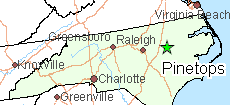 Pinetops offers proof of the obscenity of bought-and-paid-for-politicians supporting corporate protectionism that harms people, harms education, harms jobs, and leaves rural communities with no clear path to the digital economy of the 21st century. Legislation like H129, which continues to be enforced in more than a few U.S. states, needs to be pre-empted nationwide or even better repealed by state legislators.
Pinetops offers proof of the obscenity of bought-and-paid-for-politicians supporting corporate protectionism that harms people, harms education, harms jobs, and leaves rural communities with no clear path to the digital economy of the 21st century. Legislation like H129, which continues to be enforced in more than a few U.S. states, needs to be pre-empted nationwide or even better repealed by state legislators.
But North Carolina’s legislature still isn’t getting the message. They are outraged the FCC outsmarted Time Warner Cable and them, and are now wasting time and resources to have the FCC’s pre-emption overturned in court, evidently so that rural North Carolina can continue to tough it out with DSL indefinitely. That’s political malpractice and North Carolina voters need to show the door to any elected representative that cares more about the interests of a giant cable company than what is good for you and your community. Reps. Avila and Howard don’t have to live with 3Mbps DSL, so why should you?
“If the private sector is not providing the services, the government has to step in,” said Carmon. “The internet is just like electricity. You can’t live without it.”
We couldn’t agree more.


 Subscribe
Subscribe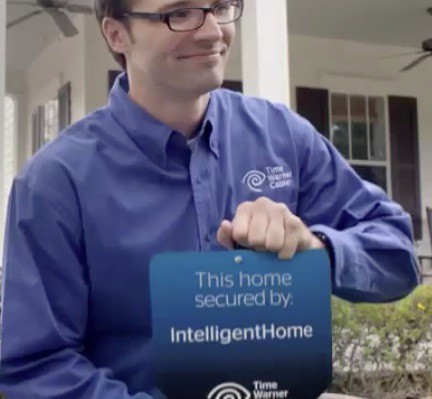
 If Time Warner does shutter the service, customers will likely be released from their contracts penalty-free, but they may also be stuck with useless equipment they can’t use with another alarm system.
If Time Warner does shutter the service, customers will likely be released from their contracts penalty-free, but they may also be stuck with useless equipment they can’t use with another alarm system.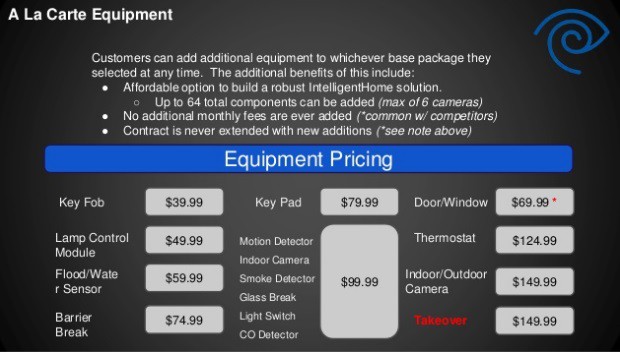 Charter Communications is one of only a few cable companies that have shown no interest in selling home security services (Cablevision is another). In 2013, it
Charter Communications is one of only a few cable companies that have shown no interest in selling home security services (Cablevision is another). In 2013, it 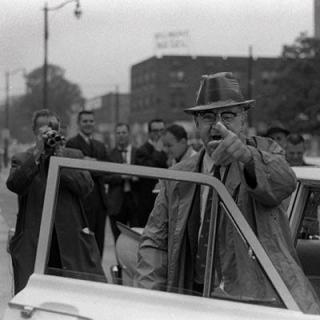

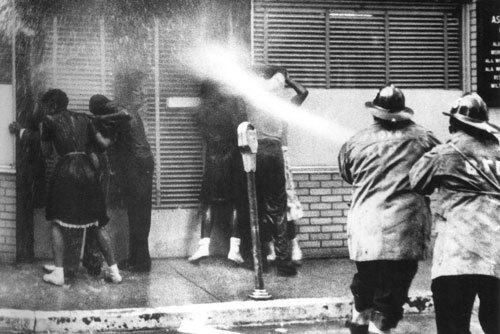 Jackson mentioned his views have the support of certain other civil rights organization including the National Urban League and the League of United Latin American Citizens (LULAC), two groups Stop the Cap! has written about extensively regarding their
Jackson mentioned his views have the support of certain other civil rights organization including the National Urban League and the League of United Latin American Citizens (LULAC), two groups Stop the Cap! has written about extensively regarding their  Jackson and his supporters are wasting their time fighting to preserve the dying concept of the 500-channel linear TV marketplace. Consumers, minorities included, are not clamoring for more minority networks littering the cable dial that spend much of their broadcast day airing program length commercials and reruns of Good Times or The Cosby Show. Many of these networks only add to the growing cost of cable TV. Viewers want on-demand access to quality original programming they can actually find and watch.
Jackson and his supporters are wasting their time fighting to preserve the dying concept of the 500-channel linear TV marketplace. Consumers, minorities included, are not clamoring for more minority networks littering the cable dial that spend much of their broadcast day airing program length commercials and reruns of Good Times or The Cosby Show. Many of these networks only add to the growing cost of cable TV. Viewers want on-demand access to quality original programming they can actually find and watch.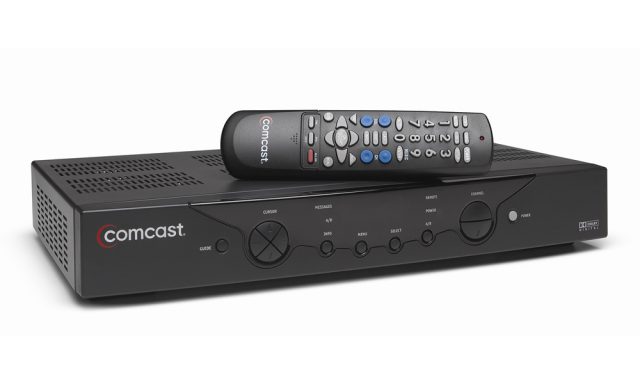 It’s all hands on deck for a cable industry desperate to protect billions in revenue earned from a monopoly stranglehold on the set-top box, now under threat by a proposal at the FCC to open up the market to competition.
It’s all hands on deck for a cable industry desperate to protect billions in revenue earned from a monopoly stranglehold on the set-top box, now under threat by a proposal at the FCC to open up the market to competition.



 Despite clamoring for more competition in the cable industry, FCC chairman Thomas Wheeler is reportedly ready to circulate a draft order granting Charter Communications’ $55 billion dollar buyout of Time Warner Cable, with conditions.
Despite clamoring for more competition in the cable industry, FCC chairman Thomas Wheeler is reportedly ready to circulate a draft order granting Charter Communications’ $55 billion dollar buyout of Time Warner Cable, with conditions. Critics of the deal contend that might be an effective strategy… if Charter was the only cable company in the nation. Many cable operators include similar restrictive terms in their contracts, which often also include an implicit threat that offering cable channels online diminishes their value in the eyes of cable operators. Programmers fear that would likely mean price cuts as those contracts are renewed.
Critics of the deal contend that might be an effective strategy… if Charter was the only cable company in the nation. Many cable operators include similar restrictive terms in their contracts, which often also include an implicit threat that offering cable channels online diminishes their value in the eyes of cable operators. Programmers fear that would likely mean price cuts as those contracts are renewed. Most of the other deal conditions will likely formalize Charter’s voluntary commitments not to impose data caps, modem fees, interconnection fees (predominately affecting Netflix) or violate Net Neutrality rules for the first three years after the merger is approved. As readers know, Stop the Cap!
Most of the other deal conditions will likely formalize Charter’s voluntary commitments not to impose data caps, modem fees, interconnection fees (predominately affecting Netflix) or violate Net Neutrality rules for the first three years after the merger is approved. As readers know, Stop the Cap! 